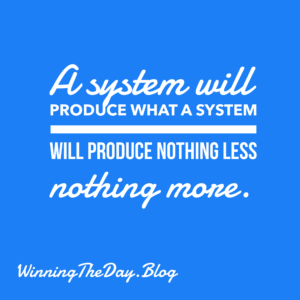Adam Smith’s “The Wealth of Nations,” while a foundational text in economics, offers surprisingly relevant insights for real estate agents, recruiters, and broker owners. Let’s explore how some of his key concepts can be applied in the real estate world:
1. Division of Labor: Specialization in Real Estate
Just as Smith highlighted the efficiency gains from specialization, real estate professionals can benefit from focusing on specific niches. Instead of trying to be everything to everyone, agents can specialize in areas like luxury homes, first-time buyers, commercial real estate, or specific neighborhoods. This specialization allows agents to develop deeper expertise, become more efficient, and better serve their clients. Similarly, brokerages can benefit from having specialized teams for different aspects of the business, like marketing, lead generation, or transaction management.
2. Self-Interest and the “Invisible Hand”: Client Focus and Market Dynamics
While “self-interest” might seem like a negative term, in the context of real estate, it translates to agents focusing on their own success by diligently serving their clients’ needs. By prioritizing client satisfaction and building strong relationships, agents not only achieve their own goals but also contribute to the overall health of the market. The “invisible hand” plays out in the real estate market as buyers and sellers, each pursuing their own interests, interact to determine property values and market trends. Understanding these dynamics is crucial for agents to advise their clients effectively.
3. Free Trade (Open Markets): Competition and Client Choice
Smith’s advocacy for free trade translates to the importance of open and competitive real estate markets. Buyers should have access to a wide range of listings, and sellers should be able to market their properties freely. Competition among agents benefits consumers by driving up service quality and keeping commission rates competitive. For recruiters, this means attracting and retaining top talent to stay competitive in the market. For brokers, this means creating an environment where agents can thrive and compete ethically, fostering a healthy market.
4. Limited Government Intervention (Regulation): Balancing Freedom and Protection
While Smith advocated for limited government intervention, he also recognized the need for rules and regulations. In real estate, this translates to the importance of ethical practices, licensing requirements, and consumer protection laws. These regulations help maintain a fair and transparent market, protecting both buyers and sellers. Broker owners play a vital role in ensuring their agents adhere to these regulations and maintain the highest ethical standards.
5. Critique of Mercantilism (Hoarding): Focus on Value Creation
In the real estate context, “mercantilism” could be likened to agents focusing solely on maximizing their own commissions without truly adding value for their clients. Smith’s critique encourages a shift towards building long-term relationships, providing expert advice, and focusing on the client’s best interests. This approach, while potentially leading to slightly lower commissions in the short term, ultimately builds trust, generates referrals, and creates sustainable success.
6. Importance of Competition: Driving Innovation and Service
Competition among real estate agents is essential for driving innovation and improving service quality. Agents are constantly striving to offer better marketing strategies, utilize new technologies, and provide more personalized service to attract and retain clients. This competitive environment benefits consumers by providing them with more choices and higher quality service. For brokers, this means fostering a culture of continuous improvement and providing agents with the resources they need to stay ahead of the curve.
Applying these principles:
- Agents: Focus on specialization, client service, and ethical practices. Embrace technology and innovative marketing strategies to stay competitive.
- Recruiters: Attract and retain top talent by offering competitive compensation, training, and support. Highlight the brokerage’s commitment to ethical practices and client service.
- Broker Owners: Foster a culture of competition, innovation, and client focus. Ensure compliance with regulations and provide agents with the resources they need to succeed.
By understanding and applying these principles from “The Wealth of Nations,” real estate professionals can build stronger businesses, better serve their clients, and contribute to a thriving real estate market.
